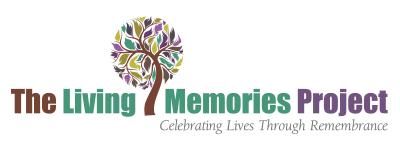Reprinted from HuffingtonPost.com,
It was just another day in what has become my routine in the seventh week following my husband’s open-heart surgery. I was in a hurry, having left him at home with his fifth bout of atrial fibrillation since the surgery. I had to pick up yet another medication from CVS, where I am sorry to say they are all too familiar with my husband’s medications, and they know who I am.
With the $7 off “extra bucks” coupon I had garnered on my last trip, I decided to buy myself a treat while I was there. I settled on a lipstick labeled “medium berry.” I don’t know why I buy lipsticks without knowing what they will actually look like on my lips; they rarely work. But somehow it comforted me for a couple of minutes.
Then I headed to the supermarket to buy some fruits and vegetables, olive oil spray and salt-free seasoning — all part of our “new normal,” which involves avoiding take-out food and rarely eating out. When we occasionally indulge, it involves extensive questioning to determine that potential dishes have little or no salt.
As I was studying the mushroom options in the store, out of the corner of my eye, I saw Vivian in the fruit aisle, examining pears and filling her plastic bag with them. Vivian is an acquaintance — a friend of friends. I suspect she’s a couple of years older than I am, although today I noticed that her bearing appeared younger than mine. I think she’s a person who is content with simple pleasures, like eating, babysitting for her grandchildren, playing cards and hanging out with her mother. No doubt, she was happily shopping for her mom.
Her mother is 103. She has all her faculties, goes to the beauty salon each week, plays cards, and chats with her neighbors and her daughter’s friends. When my mother moved to the area 11 years ago, I thought I would introduce her to Vivian’s mother. I believe I did, although I was a bit concerned that she was a little too old for my 85-year-old mother. Unfortunately, my mother never made it to 86, but Vivian’s mom is still going strong.
Which brings me back to Vivian and me. As she worked her way to the mushrooms, I saw that there was a glow around her, almost a protective shell that made her light and beautiful — and young. When your mother is alive, you think you are younger than you are because you are still someone’s child. When your mother is alive, you can bask in the warmth of her encouragement and support, always knowing that it is there for the taking. When your mother is alive, you have a buffer between you and mortality.
We exchanged greetings, and I hurried on, feeling heavy, vulnerable by contrast, and burdened by the lack of a buffer. I retreated to the safety of my car — and for the first time in many months, I sobbed, allowing my tears to wash over and heal me. I cried for the mother I could no longer confide in on a daily basis. I cried for the husband struggling with a rocky recovery. I cried for my lost youth and for my encounter with my own mortality.
And then it was over and I felt cleansed.
I remembered my mother’s words: “Everything is temporary.” My husband’s illness will pass and so will my exhaustion, that’s what my mother would say. More of my mother’s wisdom came to me: “Always be forgiving because you never know what someone else is experiencing.” How profoundly my husband’s illness has taught me that lesson, and how I hope I will continue to remember it.
I knew then and there that my mother would always be with me in one form or another.
With love and gratitude, I remembered the blessing of our growing family – with another grandchild soon on the way.
Coming face to face with your own mortality teaches you what really matters – good health, family, faith, friends, and community.
Coming face to face with your own mortality is not necessarily a bad thing. It makes you think about the bigger picture and your own legacy. It inspires you not only to give, but also to live.
Read the full article here: http://www.huffingtonpost.com/entry/58a9c179e4b0fa149f9ac783
